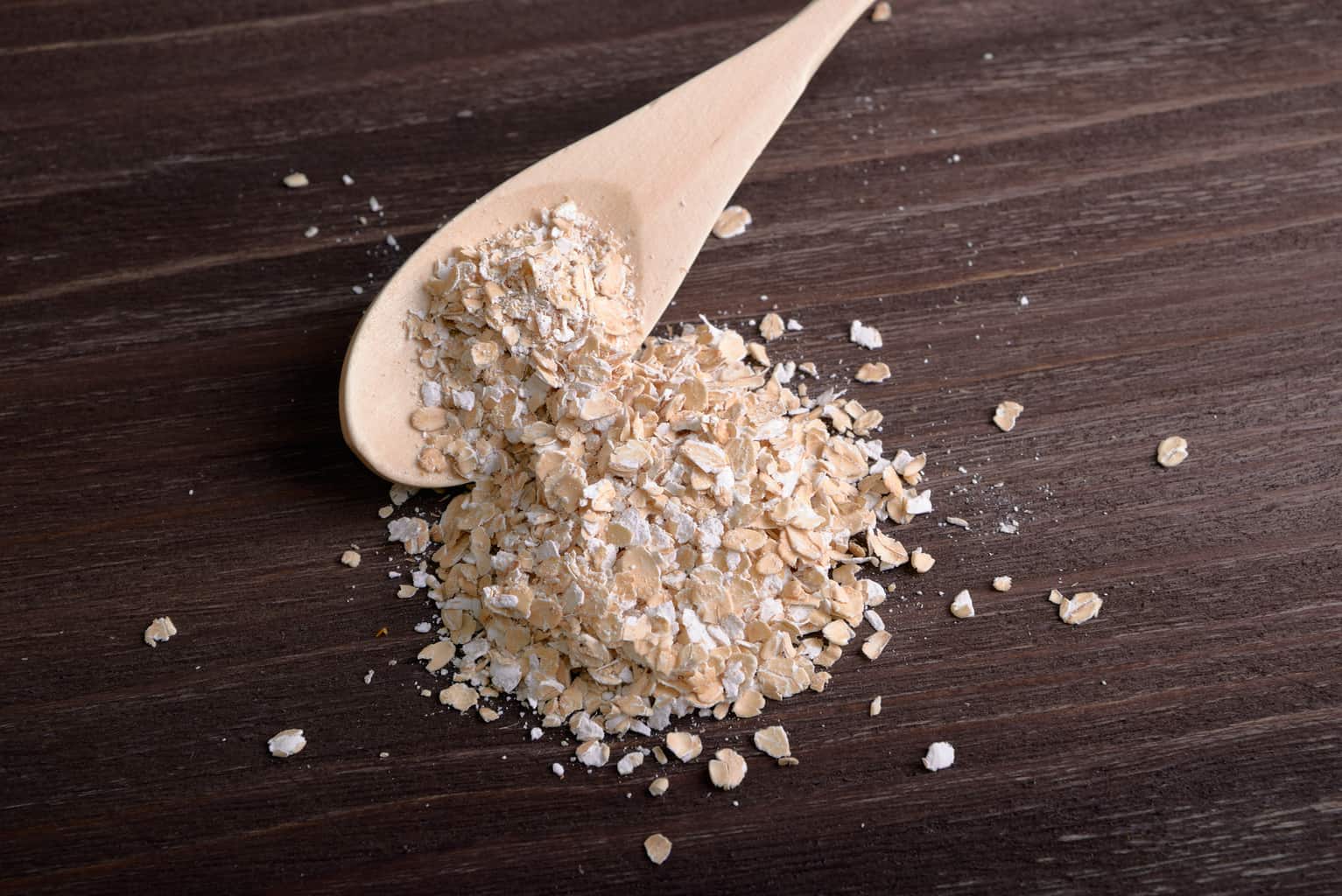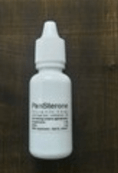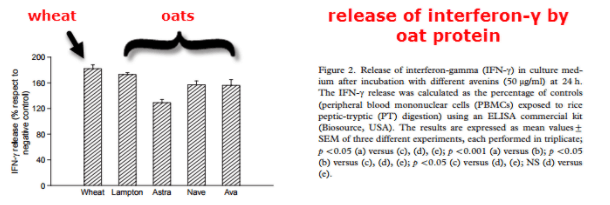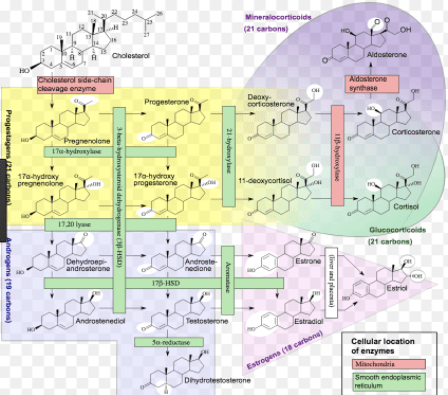
[cmamad id=”14296″ align=”center” tabid=”display-desktop” mobid=”display-desktop” stg=””]
Here’s what Quaker Oats does not want you to know…
—–Important Message——
Here’s what men are painting on their testicles to increase T levels and size…
They say: Paint it on and watch it grow…
The stuff you paint on often lets you grow a little bigger and fatter…
…and these substances are made only from natural herbs found in the jungles of Colombia.
My testosterone was 883 in my most recent lab test. Many men my age suffer 200 or 300 T levels.
It’s only because I paint it on and watch it grow:

Eat more oats – the truth
Although generally considered safe, oats have been shown to induce immunogenic responses in some people.
This can lead to increased production of histamine and prostaglandin, causing inflammation.
Histamine in the brain has been shown to cause confusion and habitual behavior.
The brain has its own mast cells which release histamine in response to immune system activation.
The reason oats are generally considered safe boils down essentially to the fact that they don’t contain gluten.
But anything looks hypoallergenic when compared to gluten.
Researchers apparently feel that when we eliminate gluten and rye we should substitute them with another grain…
[cmamad id=”14297″ align=”center” tabid=”display-desktop” mobid=”display-desktop” stg=””]
As if there must be a grain replacement.
“If oats are confirmed to be safe, it would be a valuable component and offer more variation in a gluten-free diet.”
This is sloppy thinking. We don’t need to eat grains at all. There is nothing special about them.
But as long as we understand them, we can deal with them.
We can even eat them safely by consuming them along with the proper enzymes.

This immune effect was plainly demonstrated in an Italian study.
The T‐cells from ten study subjects were separated from their blood and tested.
T‐cells are a type of white blood cell – immune cells created by the thymus gland.
The scientists added food proteins to the T‐cells – either wheat gluten avenin (a protein in oats). They tested proteins derived from four separate strains of oats.
The results were a measurable and profound interferon gamma release:

Interferon-γ is no small matter, as this cytokine goes on to cause mischief in cells all over the body.
This signaling protein travels to other cells, enters those cells, and then induces the transcription of a prostaglandin‐producing enzyme called phospholipase A₂.
“All the varieties of oats tested were immunogenic, with Lampton and Ava avenins inducing lymphocyte activation similar to that activated by wheat gliadin…”
This means that oats can not only cause an initial prostaglandin spike, but they can also create the enzyme required to release prostaglandins for days.
Prostaglandin D₂ is formed during this process, and that’s been shown to cause hair loss.
Interferon-γ is probably the reason why alopecia (spot baldness) occurs during immune activation cascades in celiac disease, leishmaniasis, and sometimes even after undergoing vaccination.
Mice bred to express interferon-γ on their skin are completely hairless.
So interferon-γ should be avoided for the prevention of hair loss. This means avoiding immunogenic proteins.
“It is also clearly shown that Ava and Lampton avenins are the most potentially immunogenic, although the Astra avenins exert a measurable effect. Gliadin, as expected, displayed the highest activity.”
So just because it is a grain that’s “not gluten” doesn’t mean it doesn’t cause a response.
It’s relatively safer, but not completely safe.
Constantly comparing oats to something more reactive does nothing but deflect.
Just because Hardees isn’t White Castle doesn’t necessarily make it a good restaurant.
And there is more evidence that demonstrates this.

A team of chemists in The Netherlands synthesized the reactive peptides of wheat, barley, rye, and oats.
These peptides were tested individually in relation to T-cell proliferation and interferon-γ release – these are gold standards for assaying immunogenic proteins.
“The induction of T-cell proliferation by the homologue peptides is mirrored by interferon gamma secretion in all cases.”
Certain peptides from all four grains were immunogenic. And wheat proteins were, predictably, the worst:

Rye, which is similar, was essentially just as active – followed by barley and then by oats.
The reason why grains and not potatoes are immunogenic comes down to the proline residues.
“These storage proteins contain high percentages of proline residues (20%) and glutamine residues (38%). The latter serve as the nitrogen source for germinating seeds.”
Proline is a most unusual amino acid.
When proline is found in high amounts in a protein, the peptide segments which contain it become resistant to proteolysis.
Enzymes in the digestive tract cannot break down proteins with so many prolines, so they enter the body in the form of large fragments.
This is why meat, fruit, and vegetables rarely cause an immune response.
Their proteins are easily broken down into individual amino acids.
Oats only appear to be less immunogenic than grains containing gluten because they have fewer immunogenic proteins than wheat and rye.
“The main difference in composition between oats and the other grains is the lower amount of proline residues (10%) present in avenin proteins. Furthermore, oats contain a relatively low content of storage proteins (approximately 10% of the total grain protein compared with 40%–50% in wheat, barley, and rye).”
But the proteins that oats do contain are just as effective at releasing interferon-γ.
In this way, oats should be seen as similar to wheat, only diluted about fivefold.
Oats don’t usually cause the intestinal changes that gluten has been shown to cause, but this can occur.
This is a highly individual response, of course. And not all people respond in the same way.
You can be sensitized once a long peptide gets into your body, in one piece. Reactions are amplified thereafter.
In some people, the main oat peptide is even more immunogenic than gluten peptides:

But the reverse is also true, in some cases.
Whether a person responds or not depends mainly on prior exposure – the specific DNA of a person’s white blood cells can also play a role.
It also depends on whether the person can break down these proteins, and also on the permeability of their intestines.
Immunogenic proteins can cause asthmatic-like symptoms even when consumed orally.
This is likely the result of interferon-γ producing prostaglandin D₂, a powerful bronchoconstrictor.
“…they contain a lower number of proline residues than gliadin, secalin, and hordein, and represent much less of the total seed proteins than in other cereals (about 15%).”
Since the immunogenicity basically comes down to the proline bond, enzymes which can cleave these bonds have potential.
The enzyme prolyl endopeptidase cleaves these bonds specifically and can be purchased online.
Experiments have confirmed that this enzyme can reduce these resistant peptides down into shorter, safer segments.
Proline-specific digestive enzymes can turn proteins into amino acids much faster – avoiding any interferon-γ production.
But it’s just as good to avoid proteins that are causing any subclinical, persistent inflammation for you.
Subtle hidden reactions can be easily discovered after restricting a particular food for a week.
—-Important Message——
Caution: men who are losing hair (or who already are bald)
Men who lose their hair are often suffering from very low metabolism.
They are quite likely to look a little like this – a bit overweight due to their low and slow metabolism, and balding…

It turns out that men who raise their metabolism can recover, lose fat, gain muscle, and get back hard erections like the ones they used to have.
How does it work? You can raise your metabolism by using cheap drugstore supplements. Such as taurine.
Why taurine?

Taurine is one of a few supplements that drive male metabolism FASTER, HOTTER, and MORE YOUTHFUL:

——————-

https://www.ncbi.nlm.nih.gov/pubmed/17852883
Vader, L. Willemijn. "Characterization of cereal toxicity for celiac disease patients based on protein homology in grains." Gastroenterology (2003)
http://www.gastrojournal.org/article/S0016-5085(03)01204-6/fulltext
Arentz-Hansen, H. "The molecular basis for oat intolerance in patients with celiac disease." PLoS Medicine (2004)
http://journals.plos.org/plosmedicine/article?id=10.1371/journal.pmed.0010001
Lundin, K. E. A. "Oats induced villous atrophy in coeliac disease." Gut (2003)
http://gut.bmj.com/content/52/11/1649.full
https://www.healthline.com/health/food-nutrition/oatmeal-diet#1
https://www.everydayhealth.com/columns/bonnie-taub-dix-nutrition-intuition/reasons-why-you-should-eat-oatmeal-every-day/
https://www.healthline.com/nutrition/9-benefits-oats-oatmeal
http://www.stylecraze.com/articles/amazing-health-benefits-of-oats/#gref
An oatmeal diet is considered a whole grain based nutritious diet which is good for the body. Sufficient in proteins and fiber, they are low in calories and consist of the daily required amount of calcium and iron needed for the body. An oatmeal diet not only lowers the risks of heart disease but also the risks of colorectal cancer. A whole grain food like an oatmeal diet can also reduce blood pressure and help aid digestion. This is why an Oatmeal diet is important and beneficial for the body. An Oatmeal diet is very beneficial if one is serious of finding a diet plan which is healthy and does not contain excess sugars.For individuals who want to lose weight, one should start an oatmeal diet plan but in consultation with a doctor so that the daily nutrient levels are accounted for. In some cases, the inclusion of some fruits or add-on foods can substantiate the needed daily energy needs for the body. A restrictive diet plan which usually comes with an oatmeal diet is the perfect plan for somebody who is intent on losing weight and is a perfect weight loss system. Oats contain both soluble and insoluble fiber which helps to lower cholesterol and stabilize blood glucose levels. It not only improves intestinal health but also controls constipation. Not only do Oats consist of nutrients like Thiamine and magnesium, it also consists of phosphorus, zinc, selenium and iron which actually does comprise of a fully balanced breakfast model that is very healthy for the body.One can have an oatmeal diet for breakfast and lunch with a mix of skimmed milk and some fruit which can help add flavour and variety to the bland taste of oatmeal. Sometimes yogurt can be a great medium for taking oatmeal, but with a little bit of cardamom, it can create some extra zing. For dinner, an oatmeal diet with a healthy addition like grilled chicken or fish or a generous helping of nuts can help to create the perfect diet plan.
2. What are the health benefits of oatmeal?
Oats are usually known as the healthiest whole grains on earth which consist of important vitamins, minerals, fiber and antioxidants that are necessary for the body. Oats and Oatmeal have many health benefits as it has been found to lower the risks of heart disease and have been found to boost weight loss and lower blood sugar levels. Oatmeal has been found to reduce the risk of cardiovascular disease.Oatmeal is very nutritious since it consists of a good amount of carbs and fiber. It is also rich in vitamins and minerals which include Manganese, Phosphorus, Magnesium, Copper, Iron, Zinc and Folate. It also has the beneficial vitamins like Vitamin B1, Vitamin B-5 and traces of Vitamin B6 and Vitamin B3. Many research tests have found that Oatmeal is very high in antioxidants and plant compounds known as polyphenols, most specifically Avenanthramides that has been found to lower blood pressure. Another antioxidant called Ferulic acid is also found in oats which is very beneficial for the body.Oats also contain healthy amounts of a soluble fibre called Beta-Glucan which has been found to reduce LDL and the total cholesterol levels in the human body. Beta-Glucan have also been found to reduce the blood sugar levels and can increase the feeling of fullness when consumed. It also plays an important role in boosting the growth of good bacteria in the digestive tract. Oatmeal has also been found to lower high blood sugar a level in those who are overweight or who are suffering from Type 2 Diabetes. It can also improve insulin sensitivity and also helps in losing weight. Thus it is good for diabetes treatment. According to certain research, Oats can decrease the risk of childhood asthma in kids. Oatmeal is also a great resource for elderly people who may suffer from constipation issues. Oatmeal can help in reducing constipation while fulfilling the body’s nutrient needs. The antioxidants and fibre in oats can also help in fighting against rectal and colon cancers since it consists of the special compounds called avenanthramides, which has anti-inflammatory properties and boost the immune system of the body. Since Oats are also rich in selenium and zinc, it helps in boosting the immunity power of the body and plays an effective role in fighting against a wider range of bacteria, viruses and fungi.Oats have also been found to contain traces of silicon which is an essential element for bone health and helps to aid in bone formation and maintenance. The amino acids in oats also help to produce melatonin which is the chemical that induces sleep and since it also consists of Vitamin B6. Oatmeals can help in reducing stress more.

Leave a Reply